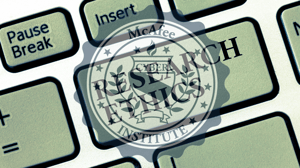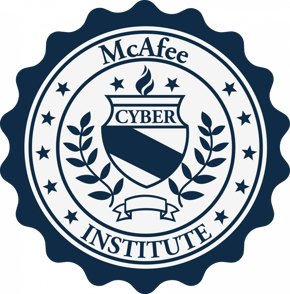Navigating the Moral Compass: Ethics in Intelligence Work
In the realm of intelligence, ethics isn't just a theoretical concept – it's a practical guide that navigates professionals through the intricate labyrinth of moral dilemmas. This blog post delves into the role of ethics in intelligence work, highlighting the importance of ethical considerations and standards in the intelligence community.
Understanding the Role of Ethics in Intelligence
Ethics in intelligence work serves as the moral compass guiding professionals in their actions and decisions. The nature of intelligence work often involves dealing with sensitive information, making ethical considerations paramount. The role of ethics here is to ensure the appropriate and lawful use of collected intelligence, thereby upholding the integrity of the intelligence community. Ethical standards in intelligence work are a set of principles and guidelines that govern the conduct of intelligence professionals. Ethical standards in intelligence work broadly encompass respect for the law, the responsible use of information, and the preservation of human rights. Intelligence professionals are expected to comply with all applicable laws and regulations, both domestic and international. This includes laws related to privacy, data protection, and human rights. In addition, they must use the information they gather responsibly. This means not only protecting sensitive information from unauthorized access or disclosure but also ensuring it is used only for legitimate, authorized purposes. Furthermore, ethical standards require intelligence professionals to respect the rights and dignity of individuals. This involves minimizing any potential harm or intrusion into individuals' privacy. It also means avoiding any form of discrimination or bias in their work.
Lastly, transparency and accountability are key ethical standards in intelligence work. While the nature of intelligence work often requires secrecy, it is also important for intelligence agencies to be as transparent as possible about their activities, within the limits of national security. This helps maintain public trust and oversight. Accountability, meanwhile, ensures that any misconduct or breach of these ethical standards can be identified and appropriately addressed. In sum, the ethical standards in intelligence work aim to balance the need for effective intelligence gathering with the imperative to respect legal and ethical boundaries.
Ethical Issues in Intelligence: A Complex Landscape
The world of intelligence work is rife with ethical issues. From respecting individual privacy rights to avoiding the misuse of information, intelligence professionals continually grapple with these challenges. Balancing the need for information and the respect for ethical boundaries is one of the most significant challenges in this field. Failing to uphold ethical responsibilities in intelligence work can have serious consequences, both for individuals and organizations. Unethical practices can lead to the misuse of sensitive information, invasion of privacy, and potential legal repercussions. At an organizational level, such actions can undermine the credibility and trustworthiness of the intelligence community, damaging its reputation and effectiveness. Furthermore, it can lead to the loss of public trust, which is essential for intelligence agencies to operate effectively. In extreme cases, unethical behavior can even compromise national security by leading to incorrect assessments or strategically flawed decisions. Therefore, adhering to ethical standards is not merely a moral obligation but a crucial requirement for the successful and responsible functioning of intelligence work.
Intelligence Gathering Ethics: Striking the Right Balance
The process of intelligence gathering often brings ethical considerations to the forefront. Obtaining valuable information without violating ethical standards is a delicate balance. Intelligence gathering ethics ensure that the methods used to collect data are justifiable and respectful of individual rights and freedoms.
Ethical Standards in Intelligence: Setting the Bar
Upholding ethical standards in intelligence is crucial for maintaining trust within and outside the intelligence community. These standards act as a yardstick, helping intelligence professionals measure their actions against established ethical norms. Adhering to these standards not only preserves the integrity of intelligence work but also enhances its effectiveness.
Intelligence Ethics Case Studies: Lessons from the Past
Exploring case studies offers valuable insights into the practical application of ethics in intelligence work. These real-life examples shed light on past mistakes and successes, providing a platform for learning and growth. They often serve as cautionary tales, reinforcing the importance of ethical decision-making in intelligence work.
The Intelligence Community and Ethics: A Mutual Bond
The intelligence community and ethics share an indissoluble bond. Ethics forms the backbone of the intelligence community, fostering trust, accountability, and professionalism. This bond is instrumental in ensuring the responsible collection, analysis, and dissemination of intelligence.
How McAfee Institute Can Help
At McAfee Institute, we understand the importance of ethics in intelligence work. Our board certifications, such as the Certified Expert in Cyber Investigations (CECI), Certified in Open Source Intelligence (C|OSINT), Certified Social Media Intelligence Expert (CSMIE), Certified Cyber Intelligence Investigator (CCII), Certified Cyber Intelligence Professional (CCIP), encompass the ethical aspects of intelligence work, ensuring you are equipped to navigate the ethical landscape effectively. Whether you are aiming to gain a solid understanding of intelligence ethics or aiming to navigate the complex ethical dilemmas in intelligence work, our certification programs offer the knowledge and skills you need. Take the step forward in your career and join the ranks of professionals upholding the highest ethical standards in intelligence work. Explore our board certifications today. These certifications cover a broad range of topics and skills that are essential for intelligence work, including ethical considerations and practices. By pursuing these certifications, professionals can gain a deeper understanding of the ethical aspects of intelligence work and be better equipped to navigate the ethical landscape in their roles. Explore our Board Certifications.
Understanding the role of ethics in intelligence work is a key aspect of being an effective and responsible professional in the intelligence community. The right training and guidance can help you navigate this complex landscape with confidence and integrity. Embark on this journey with McAfee Institute today
Understanding the role of ethics in intelligence work is a key aspect of being an effective and responsible professional in the intelligence community. The right training and guidance can help you navigate this complex landscape with confidence and integrity. Embark on this journey with McAfee Institute today. Explore our board certifications and join the ranks of professionals upholding the highest ethical standards in intelligence work.
-1.png?width=150&height=75&name=McAfee%20(3)-1.png)
.png?width=150&height=75&name=McAfee%20(3).png)

